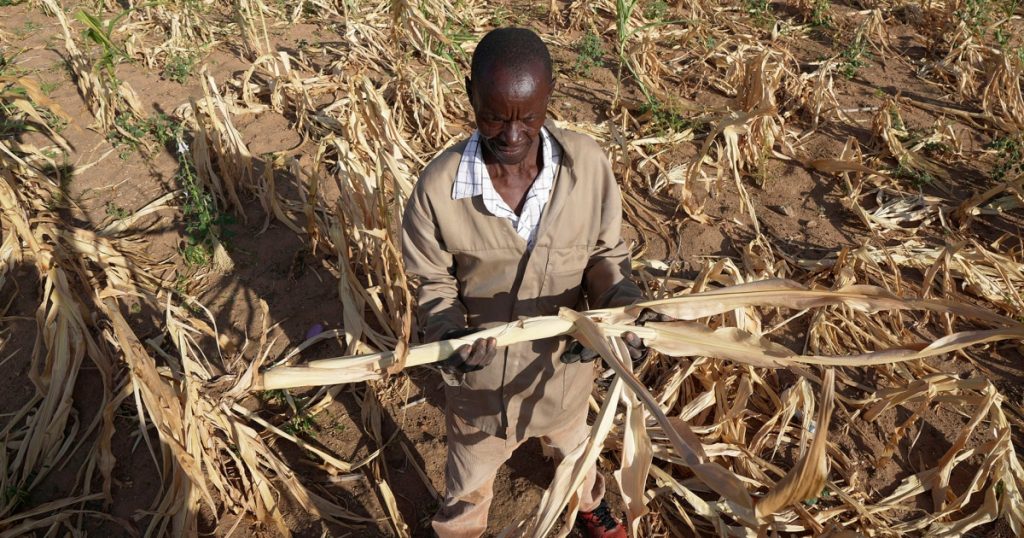Zimbabwe has declared a state of disaster due to a devastating drought caused by the El Nino weather phenomenon, with President Emmerson Mnangagwa calling for $2 billion in humanitarian assistance to address the crisis. The drought has affected more than 80% of the country, leaving millions of people in need of food aid. The situation has led to the declaration of a state of disaster, with international aid agencies, businesses, and faith organizations being asked to contribute to the relief efforts.
The United Nations’ World Food Program has already begun rolling out food assistance programs in Zimbabwe, targeting 2.7 million people, nearly 20% of the population. With below-average rainfall and little hope for replenishing food stores, even more people are expected to require assistance in the coming months. The majority of Zimbabwe’s population lives in rural areas, relying on agriculture for their food supply, and many will struggle to access food due to the extreme weather conditions.
Zimbabwe, once a regional agricultural powerhouse, has increasingly relied on aid agencies to prevent mass hunger in recent years due to extreme weather events such as heatwaves and floods. President Mnangagwa’s declaration of a state of disaster will allow aid agencies to mobilize international support for additional assistance, but resources are limited, and only the most vulnerable populations may receive aid. The global hunger crisis and a decrease in humanitarian funding by wealthy governments further complicates the situation.
The drought crisis is not limited to Zimbabwe, as neighboring countries like Zambia and Malawi have also declared national disasters and appealed for humanitarian assistance. Zambian President Hakainde Hichilema reported that almost half of the country’s staple corn crop had been destroyed, affecting over 6 million people, half of them children. Malawian President Lazarus Chakwera requested over $200 million in emergency aid for 2 million households affected by the drought. The United States Agency for International Development estimates that 20 million people in Southern Africa needed food relief between January and March, with ongoing needs expected into early 2025 in areas most affected by El Nino.
The Southern African food crisis underscores the urgent need for international assistance to address the widespread impact of the ongoing drought. Millions of people are facing hunger and food insecurity as a result of failed crops and water shortages, with vulnerable populations at risk of succumbing to hunger-related illnesses. As governments and aid agencies work to ramp up relief efforts, it is crucial for the international community to come together to support those in need and prevent further suffering in the region. The long-term effects of the drought may continue to be felt for years to come, highlighting the importance of sustainable solutions to address the root causes of food insecurity in Southern Africa.


